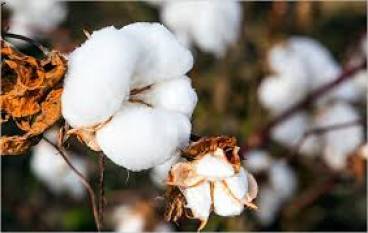MUMBAI, 26 May 2025 : strong>MUMBAI, 26 Mumbai 2025: There was a time when the names of Gujarat, Rajasthan and Madhya Pradesh were attached to every thread of cotton and these states were intertwined with each other along with the yarn made from cotton. At one time, traders across the country used to take note of the cotton futures price of Surendranagar.
However, now the circumstances have changed with time. The Surendranagar V-797 Kapas futures are closed. Now the traders of the three states, which are considered the hubs of cotton trade, have started trading with the global market prices. Which is also necessary. During the trade war and the Indo-Pak war, we saw the impact of wars on the cotton market. Currently, the benchmark futures for the domestic market is NCDEX's Shankar Kapas, which has fallen by INR 125 per 20 KG from April 1, 2025 to May 22, 2025.
When the futures for the maturity period of April 30, 2026 opened on April 1, 2025, the price was INR 1600 per 20KG, while the futures for April 2025 were trading at INR 1470 on the same day. The market situation is bearish and everyone believed that the sowing would decrease in the upcoming Kharif season, so the prices opened slightly higher.
But the picture is changing with time. There are indications that farmers who are preparing for sowing are still sowing Kapas. Because farmers also have to maintain the cycle of crops like cotton, castor, groundnut etc, to maintain fertility in the soil.
We have seen the impact of changing global market conditions. Vietnam's garment exports increased by 18 percent in April 2025 and Cambodia's exports by 30 percent due to the tariff war between the US and China. While India's exports are reported to have increased by 7.5 percent.
Traders estimate that 300 lakh bales has been arrived in domestic market. In which old stock will also have to be counted. Along with this, imported goods worth 33 lakh bales will also have to be counted. It is worth noting that 15 lakh bales were imported last year. The belief of the people in the villages is that farmers do not have much Kapas stock now.
However, the government and the Cotton Association of India (CAI) are reducing the production estimates from time to time. According to the latest estimates, CAI estimates that the 2024-25 season will produce 291.30 lakh bales. While the government estimates the production of 294 lakh bales. Currently, CCI also sells bales. Therefore, the ginners have to compete with the government as well.
There has been no increase in the consumption of cotton in India. The closing stock at the end of the season in September 2025 is expected to be 23.50 lakh bales. This was 30.19 lakh bales last year. Globally, the US cotton balance sheet is likely to change slightly in 2024-25, with exports expected to fall by one lakh bales.
The ending stock has increased by the same amount to 50 Lakh bales. Global cotton production has declined slightly due to lower production in many countries, although this is partially offset by an increase in China. The market is going through a prolonged liquidation.
The ginning season in India will end in next month. But considering the market's volatility, traders who still have the mindset of stocking bales should sell bales, Kapas and cottonseed meal futures before keeping stock. This can be done safely. Monsoon is at doorstep, the demand for cottonseed meal will decrease. There is still a year left for the delivery of NCDEXC Kapas futures. Many factors can change in one year time. Therefore, instead of getting confused by the recession, those who stay away from risk until the sowing picture becomes clear will be happy.
By Kalpesh Sheth is an commodities expert with years of experience.
Image credit: fashionnetwork.com




















